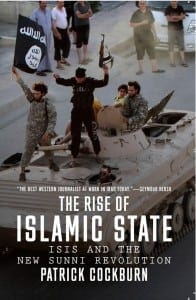Plane Bombing Proves Russian Airstrikes are Hurting ISIS
![]()
//
by PATRICK COCKBURN
Once again the world has underestimated the strength and viciousness of Isis. The group has always retaliated against any attack by targeting civilians and killing them in a way that ensures maximum publicity. This happened most recently in Turkey on 10 October when Isis suicide bombers killed 102 people attending a pro-Kurdish peace demonstration. In Kobani in Syria at the end of June, Isis suicide squads avenged recent military defeats by the Syrian Kurds by murdering at least 220 men, women and children. In Iraq, the leader of the Albu Nimr tribe told this newspaper how 864 of his tribesmen had been killed over the previous year for resisting Isis advances.
It was always likely that Isis would retaliate against the Russian air campaign in Syria that is targeting its forces and al-Qaeda clones such as the al-Nusra Front and Ahrar al-Sham. But the carefully planned destruction of a Russian plane with 224 people on board by a bomb on 31 October has presented Western governments and media with a publicity problem. They had been relentlessly pursuing a propaganda line that the Russian air strikes in Syria have avoided hitting Isis and are almost entirely directed against “moderate” or “Western-backed” Syrian opposition forces seeking to overthrow President Bashar al-Assad. The fact that Syrian armed opposition in north-west Syria is dominated by al-Nusra and Ahrar al-Sham is seldom mentioned.
Isis evidently does not have any doubts about the Russian air strikes being aimed at itself and cannot have done so since the raids started on 30 September, because an operation such as getting a bomb on to a plane at Sharm el Sheikh airport would take weeks to set up. There is a further misunderstanding about the Russian attacks on Isis and other salafi-jihadi armed groups in Syria. They are much heavier than anything being carried out by the US-led coalition, with 59 Russian strikes on one day recently compared to the US launching just nine.
There is a limitation on the use of US air power in Syria which may not be immediately evident, even to those who study communiqués issued by the US defence department. Of nine strikes on 6 November, three are described as being near Hawl, an Arab town in north-east Syria where the Kurdish People’s Protection Units (YPG) are fighting Isis. Two strikes were near Hasakah, also in north-east Syria and, again apparently, in support of the YPG. The remaining four were near Abu Kamal, near the Iraqi border, said to be an Isis “crude oil collection point”.
This is in keeping with the US air campaign’s almost exclusive focus in Syria on helping the Syrian Kurds in fighting Isis, and also attacking Isis-controlled oil facilities in north-east Syria. There are seldom any attacks on Isis when it is engaged in fighting the Syrian army because this might be interpreted as keeping Assad in power in Damascus. [Why would the US care one whit about this?Its clear Washington does not respect world opinion.—Eds] But this does not make much sense because American and British policy is meant to be to remove Assad, but keep the Syrian state in being. This would be unlike Iraq in 2003 when the US-led invasion overthrew Saddam Hussein, but destroyed the Iraqi state in the process and opened the door to a Sunni insurgency and the rise of al-Qaeda in Iraq.
It would therefore make sense, and have made sense over the last year, for the US air force to attack Isis when it is advancing against the Syrian army. It is this army which is the most important institution of the Syrian state, and if Washington and allies such as the British do not want to repeat the disastrous fiasco of their intervention in Iraq, they should support it when fighting Isis.
Again, sensible policy decisions are blocked by a view of the situation on the ground in Syria that is largely shaped by sloganeering and propaganda. In this case, the Syrian opposition claim is that the Syrian army has never seriously fought Isis and, indeed, is complicit in its growth and expansion. This view has been widely credited, though it is demonstrably false because Isis has repeatedly fought and usually defeated the Syrian army in eastern Syria. It captured Palmyra in May and has since advanced to within a few miles of the crucial north-south M5 highway linking Damascus to Homs. For a few days recently, it cut the last government-held road into Aleppo before being driven back by the Syrian army supported by Russian air strikes.
 Patrick Cockburn is the author of The Rise of Islamic State: ISIS and the New Sunni Revolution.
Patrick Cockburn is the author of The Rise of Islamic State: ISIS and the New Sunni Revolution.
Note to Commenters
Due to severe hacking attacks in the recent past that brought our site down for up to 11 days with considerable loss of circulation, we exercise extreme caution in the comments we publish, as the comment box has been one of the main arteries to inject malicious code. Because of that comments may not appear immediately, but rest assured that if you are a legitimate commenter your opinion will be published within 24 hours. If your comment fails to appear, and you wish to reach us directly, send us a mail at: editor@greanvillepost.com
We apologize for this inconvenience.
![]() Nauseated by the
Nauseated by the
vile corporate media?
Had enough of their lies, escapism,
omissions and relentless manipulation?
Send a donation to
The Greanville Post–or
But be sure to support YOUR media.
If you don’t, who will?


